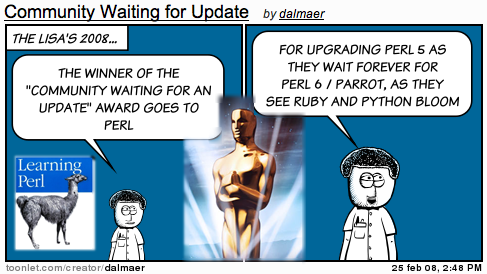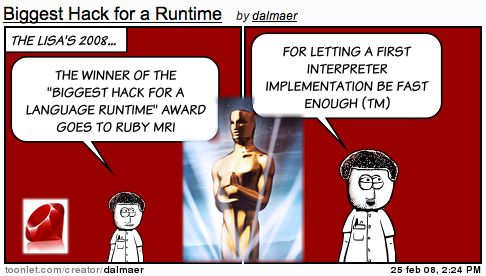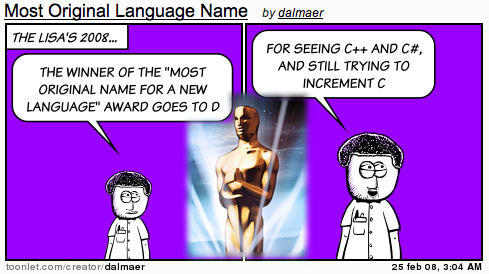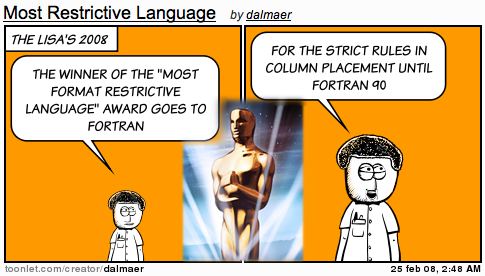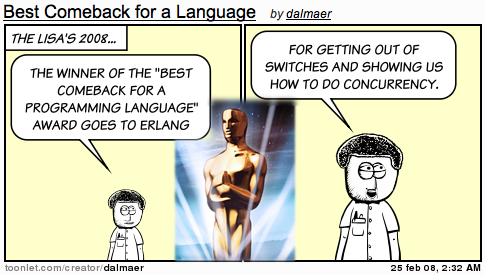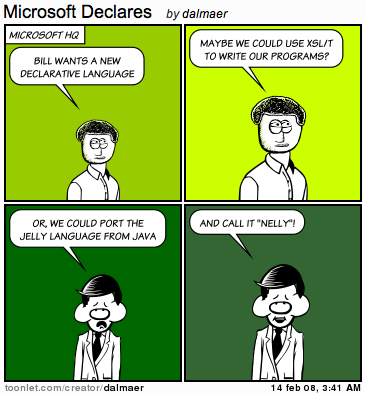Optional typing and dynamic languages
After listening to Brendan talk about typing on the latest Open Web Podcast episode on ECMAScript Harmony it got me thinking again about optional typing.
It has always bugged me a little to think of type information in my nice clean dynamic languages (Ruby, JavaScript, Python, Perl, etc.).
Looking at even the simplest of code like this (taken from Mike Chamber’s XMPP server in ActionScript 3)
var room:Room = new Room(connection);
It irks me. Just work out that it is a room already won’t you? I know you can do it? You CAN do it. So, leave it out in this case.
Although the type information is optional, it seems that a lot of the code that I have seen in AS3 puts types in all over the place. I somewhat like the idea of using types when you really need them, such as for clear documentation of a core library, or some performance issue that you find is an issue (note: that becomes an issue, not one that is assumed!)
Once you open the door though, can people play that way? Is giving the programmer a bit switch of “shall I put the type in here?” every few seconds a good thing? Especially when the tools try to put the type in all the time?
I also found it very interesting when Brendan talked about how adding type information can actually hurt performance, sharing an example of when var foo:int doesn’t do what you actually need. For me, performance is pretty much out of the window, now, and definitely in the future.
So, I lean towards not needing it. But then I flip over the cards and see stuff like this (note: a mock example):
/** * @type Room */ var room = new Room(connection);
Ugh. Now we have the worst of all words. We are documenting the code out of band. This is often done for some jsdoc-like tool that will generate docs for you. The problems are:
- The language itself has no idea about this information. The compiler. Nor, runtime. If there was something that could be done for performance, it couldn’t be
- How easy would it be to get this out of date. If you change the type no one is going to complain. There is no validation here.
- Way more verbose!
This alone makes me think that I would rather have optional types just to avoid any hacks like this.
You?
